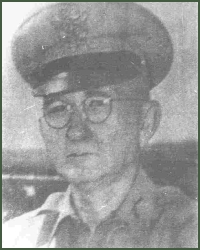This article includes a list of general references, but it lacks sufficient corresponding inline citations .(February 2017) |
| 91st Division | |
|---|---|
 91st Philippine Division Emblem 1941-42 | |
| Active | 1941 - 9 April 1942 |
| Country | |
| Branch | Philippine Army |
| Type | Infantry Division |
| Size | 6.000 |
| Part of | SLF (II Philippine Corps) (Jan 1942 - Apr 1942) Reserve Force (Nov 1941 - Jan 1942) |
| Garrison/HQ | Camp Murphy, Quezon City, Rizal |
| Engagements | World War II |
| Commanders | |
| Commander(s) | Col. (later BGen.) Luther R. Stevens Col. Stuart MacDonald (Acting) |
| Chief of Staff | Col. Edgar H. Keltner LCol. Jaime Velasquez |
| WWII Philippine Army Divisions | ||||
|

The 91st Infantry Division was a division of the Philippine Army under the United States Army Forces in the Far East (USAFFE).